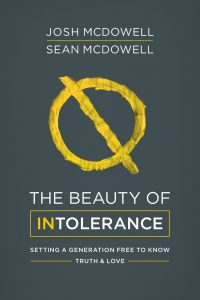
Our culturally tolerant society widely accepts the belief that our genetic disposition, lifestyle, and actions define who we are. In other words, Who I am = What I Do. Based on this narrative, who you are is inseparable from what you do and think and believe. Your identity is wrapped up in your conduct.
So, goes the thinking, if people express disagreement with your beliefs, they are disparaging you. If they say your behavior is wrong, they are judging you. When they criticize your actions, you internalize it that they are criticizing you. Just look at all the “un-friending” occurring on Facebook, to clearly see how people who take criticism as an attack on their whole self react.
This thinking is pure fallacy — and certainly not how God intends for us to view each other.
I like how evangelist Joyce Meyer tweaked the phrase. Her version: Your who is NOT your do. What does she mean by that?
God’s View of Us Should Blow Our Minds
She means that, as humans, it’s a given that we’re going to screw up. But our screw ups do NOT define us in God’s eyes. Yes, some Christian groups publicly spew “God hates you because you xxx” messages, but those people, in my opinion, are misguided in how they choose to address sinful actions.
God hates sin, but he can’t hate us. (It’s one of His promises!) Nor does our sin have the power to forever jail us — unless we, ourselves, place ourselves in a box marked “Beyond Redemption.” Jesus’s loving sacrifice at the cross forever blew that box wide open.
Does this mean that we have carte blanche to willfully sin, knowing we have Christ’s redemption? No. Just like a human parent expects his children to grow in their ability to act maturely, with kindness, generosity, and thoughtfulness toward others, so God expects us to daily commit to living to His standards.
Though cultural tolerance touts that some behaviors are perfectly acceptable — casual sex, for one — these actions are still sin to God. They always will be sin, no matter how much we try to justify them. Sorry, God’s never gonna fall for the “But everyone is doing it!” argument. We are to be a set-apart people.
That’s one of the consistencies in Christianity: God clearly outlines His standards, gives us the reason for His standards, and then leaves it up to us to decide whether we will follow them. Tweet
God fully understands that we are complex creatures ever influenced and torn by our thoughts and emotions. His stillness grounds our busyness. His unchanging nature grounds our tendency to be unreliable. His unconditional love grounds our natural default to only offer love with conditions.
We were created in God’s image. What we do or don’t do distorts that image. But our personal worth to God never changes. (Get that through your head!)
Cultural Tolerance Skews Our Thinking
Because our society is now so fixated on the Who I am = What I Do equation, people have become hyper-sensitive to how others perceive them. This entire line of thinking leads us to believe that accepting a person must include approving and endorsing what that person believes or does. Anything short of that is seen as a rejection of that person, as well as judgmental and intolerant — which is totally bogus.
If I have to endorse everything you think and do, in order for you to feel good about yourself, then I’d say there’s a problem with your self-confidence. That’s one of the strengths of trusting in Jesus — we can know that we know that we know who we are in Him. The premise of cultural tolerance, however, is that because we all get to define our own “truth,” truth is fluid. How can we be sure of anything, then?
How this thinking gained ground still stumps me. I mean, it sounds good. It sounds noble. It sounds fair. But it’s utter nonsense unless we’re all living on our own little islands (bubbles?). A society cannot stand strong when each of its individuals parts is taking action via personal desires and selfish satisfactions.
If there is no accepted “right” and “wrong,” then standards cease to exist. The nice word for that is “mess.” Agreed? Tweet
What’s disturbing is that many of our young people admit that they have trouble making moral judgments — primarily because society has been teaching them that they don’t have to.
People committed to removing America’s religious “constraints” promise that only then will our country finally be the land of the “free.” These people are misguided. God’s code of conduct — his directives on treating others with respect, love, kindness, and generosity — enabled America’s founders to build an amazing Constitution that threaded the fabric of everyday life with the ideals of fairness, truth, and brotherhood.
Turn to the Word to Keep Your Head on Straight
To wrap up, the premise of Who I am = What I Do is faulty. Our genetic disposition or how we behave does not define who God created us to be. As beings created in His image, we have immense dignity and worth. Even when our actions are not always the best.
Now, I have to be honest. Last night I was a bit snarky with someone (hey, let’s not sugarcoat it: I was rude.) I was grumpy, I was tired, I was dehydrated. None of which excuse me for not treating others with the same respect God has for them. I instantly felt God’s gentle admonishment for my not being “fruity” with this person (The fruits of the spirit, such as kindness, gentleness, patience, etc., listed in Galatians 5:22-23).
Even though I apologized to this person, for hours afterward I allowed the devil to beat me up for not living up to Christ’s example. “Oh, you think you’re such a good person,” he whispered. “But look at how you treated that person. Embarrassing! God hates you for being so hateful!”
Listen up! Did you hear the LIE embedded in that sentence there? If that wasn’t a Who I am = What I Do beatdown, I don’t know what is!
Satan, the originator of that lie, has been spreading it for as long as the world has been spinning — and we need to stop listening to it. Once I realized that Satan wanted me to wallow in my shortcoming, I turned to my Bible, to reaffirm that God promises that He is at work in me, that the renewal requires a daily struggle, and that God is understanding when I mess up. How quickly we forget (or is it just me?) that God’s grace is simply without end when we repent.
Our go-to, when we feel the failure for self-criticism or the criticism of others, should be to dive into the Word and read aloud the verses that speak to God’s promise to love, forgive, and restore us faster than we can say, “Thank you!” God’s crazy awesome like that!
Thought to Ponder
This week, your challenge is to keep track of how often you internalize what you hear from others as messaging that negatively affects who God says you are. And do the opposite: look at how often — and quickly — you judge the “who” of others on their “do.” Memorize Romans 12:2 and Romans 8:38-39. The first holds you accountable to be like Jesus. The second reminds you that nothing can separate you from the love of God — not even when your actions cause you to screw up. Seek His forgiveness, forgive yourself, and recommit to being like Christ.
 This blog post has been adapted from the book The Beauty of Intolerance, by Josh and Sean McDowell. To purchase a copy of this and other helpful resources, please visit our Store page.
This blog post has been adapted from the book The Beauty of Intolerance, by Josh and Sean McDowell. To purchase a copy of this and other helpful resources, please visit our Store page.













